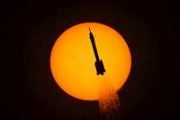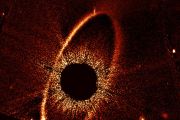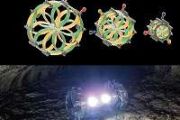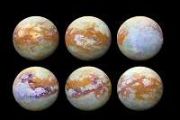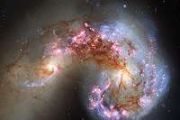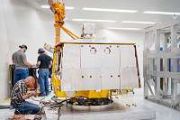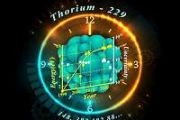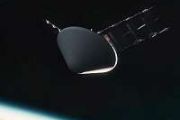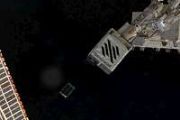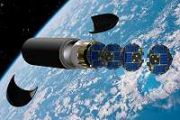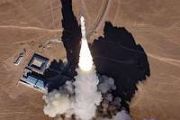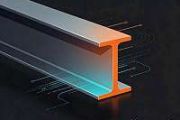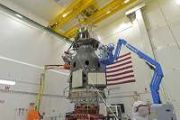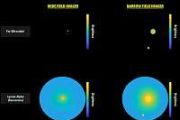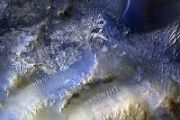
Copernical Team
China Implements Mitigation Measures Following Long March 6A Rocket Breakup
 China has initiated necessary measures and is closely observing the affected orbital area following the breakup of a Chinese rocket, according to a statement by Foreign Ministry spokesman Lin Jian on Wednesday.
Reports indicate that a Long March 6A rocket, which was launched from the Taiyuan Satellite Launch Center on August 6, disintegrated in low-Earth orbit last week, creating a debris
China has initiated necessary measures and is closely observing the affected orbital area following the breakup of a Chinese rocket, according to a statement by Foreign Ministry spokesman Lin Jian on Wednesday.
Reports indicate that a Long March 6A rocket, which was launched from the Taiyuan Satellite Launch Center on August 6, disintegrated in low-Earth orbit last week, creating a debris Researchers Unveil Insights into Quark Matter in Neutron-Star Collisions
 Collisions between neutron stars likely produce the densest form of matter known in the Universe. Through innovative approaches using two theoretical methods, scientists have now gained deeper insights into the behavior of quark matter under the extreme conditions created during these cosmic events.
Neutron stars, remnants of old stars that have exhausted their nuclear fuel and collapsed a
Collisions between neutron stars likely produce the densest form of matter known in the Universe. Through innovative approaches using two theoretical methods, scientists have now gained deeper insights into the behavior of quark matter under the extreme conditions created during these cosmic events.
Neutron stars, remnants of old stars that have exhausted their nuclear fuel and collapsed a Polish companies collaborate on in-orbit satellite refuelling technology
 The development of in-orbit refuelling capabilities is expected to play a crucial role in the future of space exploration. This technology is poised to significantly reduce costs by minimizing the need to replace satellites and supporting more sustainable mission designs, ultimately decreasing the number of satellites requiring deorbiting. Applicable to both new satellite generations and current
The development of in-orbit refuelling capabilities is expected to play a crucial role in the future of space exploration. This technology is poised to significantly reduce costs by minimizing the need to replace satellites and supporting more sustainable mission designs, ultimately decreasing the number of satellites requiring deorbiting. Applicable to both new satellite generations and current NASA to decide stranded Starliner astronauts' route home by end of month
 NASA needs to decide by the end of August whether to return two astronauts to Earth aboard Boeing's Starliner, which flew them to the International Space Station (ISS), or bring them home on a SpaceX craft, officials said Wednesday.
NASA astronauts Barry "Butch" Wilmore and Sunita "Suni" Williams blasted off for the ISS on Starliner on June 5 for what was meant to be an eight-day stay.
B
NASA needs to decide by the end of August whether to return two astronauts to Earth aboard Boeing's Starliner, which flew them to the International Space Station (ISS), or bring them home on a SpaceX craft, officials said Wednesday.
NASA astronauts Barry "Butch" Wilmore and Sunita "Suni" Williams blasted off for the ISS on Starliner on June 5 for what was meant to be an eight-day stay.
B Perseverance Rover Set to Tackle Steep Ascent on Jezero Crater Rim
 After spending 30 months exploring the floor and river delta of Jezero Crater, NASA's Perseverance rover is preparing for a challenging climb up the western rim of the crater. The ascent, expected to begin during the week of August 19, marks the start of the rover's fifth science campaign, which will take it through some of the steepest terrain it has encountered since its landing on February 18
After spending 30 months exploring the floor and river delta of Jezero Crater, NASA's Perseverance rover is preparing for a challenging climb up the western rim of the crater. The ascent, expected to begin during the week of August 19, marks the start of the rover's fifth science campaign, which will take it through some of the steepest terrain it has encountered since its landing on February 18 NASA still deciding whether to keep 2 astronauts at space station until next year
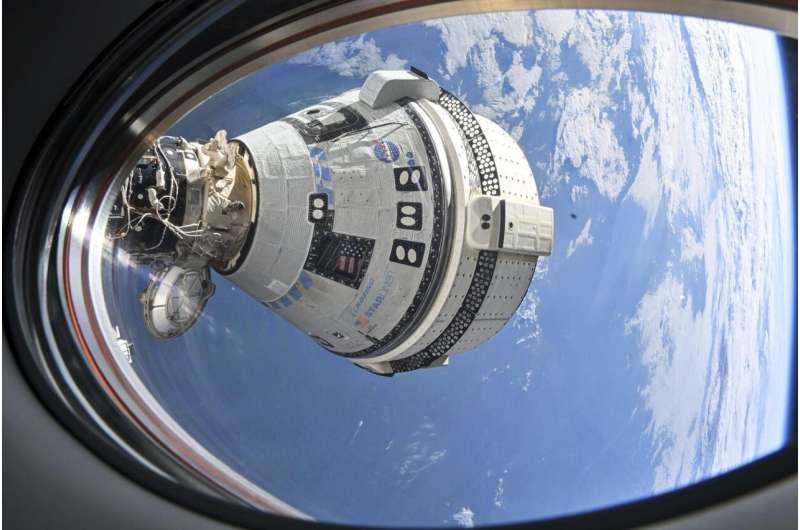
NASA said Wednesday it's still deciding whether to keep two astronauts at the International Space Station until early next year and send their troubled Boeing capsule back empty.
How the Moon shaped our world: discover our interactive publication
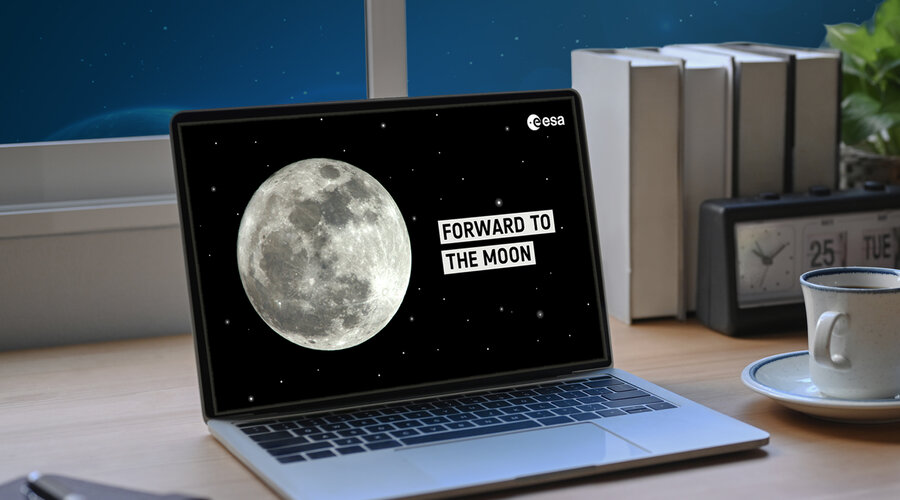
How the Moon shaped our world: discover our interactive publication
Airbus and Astroscale UK Collaborate on Advancing In-Orbit Servicing and Space Debris Removal
 Airbus Defence and Space and Astroscale Limited have signed a Memorandum of Understanding (MoU) to explore joint efforts in the realm of in-orbit servicing and space debris removal.
This collaboration seeks to combine the expertise of both companies to address the growing challenges of space sustainability and satellite longevity, with a focus on enhancing the UK's role in in-orbit servici
Airbus Defence and Space and Astroscale Limited have signed a Memorandum of Understanding (MoU) to explore joint efforts in the realm of in-orbit servicing and space debris removal.
This collaboration seeks to combine the expertise of both companies to address the growing challenges of space sustainability and satellite longevity, with a focus on enhancing the UK's role in in-orbit servici Webb Telescope Captures Detailed Image of Messier 106's Active Core
 The NASA/ESA/CSA James Webb Space Telescope has captured a stunning image of Messier 106 (NGC 4258), a nearby spiral galaxy located approximately 23 million light-years away in the constellation Canes Venatici. Messier 106, one of the closest and brightest spiral galaxies to the Milky Way, is notable for having hosted two supernovae, recorded in 1981 and 2014.
At the center of Messier 106
The NASA/ESA/CSA James Webb Space Telescope has captured a stunning image of Messier 106 (NGC 4258), a nearby spiral galaxy located approximately 23 million light-years away in the constellation Canes Venatici. Messier 106, one of the closest and brightest spiral galaxies to the Milky Way, is notable for having hosted two supernovae, recorded in 1981 and 2014.
At the center of Messier 106 NASA scientists hope to use Cold Atom Lab to better understand dark energy
 For the first time, ultra-cold atoms have been used to detect changes in the surrounding environment in space, taking a step of revolutionizing how quantum science can be used.
A new study released Tuesday in the science journal Nature Communications, NASA's Cold Atom Lab on the International Space Station measured subtle vibrations of the orbiting lab.
The team using the Cold At
For the first time, ultra-cold atoms have been used to detect changes in the surrounding environment in space, taking a step of revolutionizing how quantum science can be used.
A new study released Tuesday in the science journal Nature Communications, NASA's Cold Atom Lab on the International Space Station measured subtle vibrations of the orbiting lab.
The team using the Cold At 
